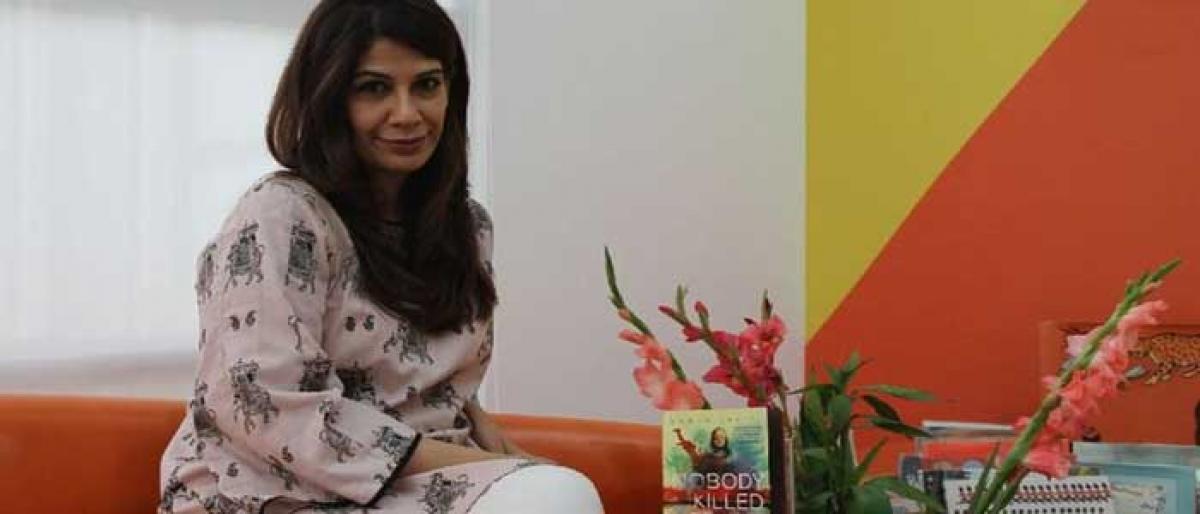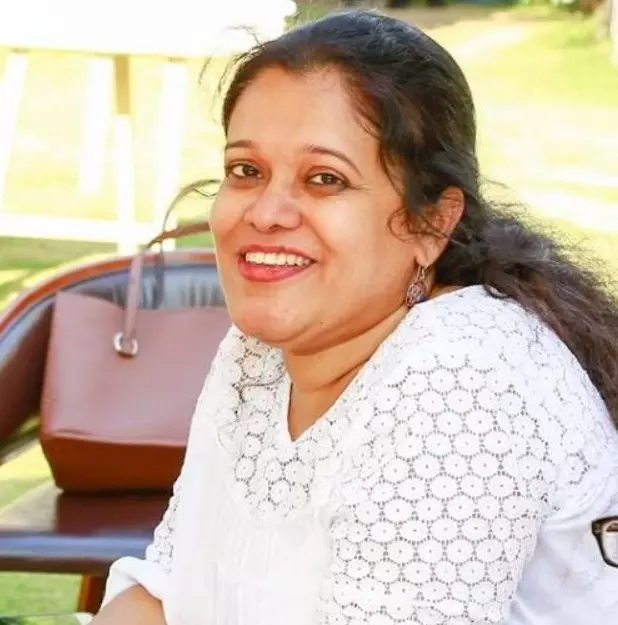Live
- Gold rates in Delhi slashes, check the rates on 26 April 2024
- OU comes alive with vibrant celebration of Taksh festival
- Gold rates in Visakhapatnam slashes, check the rates on 26 April 2024
- Ambati, Bhashyam file nominations
- Lemon vendor Mallamma files nomination
- Hyderabad: Sneha Mehra appointed as DCP (South)
- Hyderabad: HMWSSB training programme concludes
- Hyderabad: GHMC summer camps kick off
- All set for Polycet-2024 tomorrow
- Dr Srinivas gets best veterinary surgeon award
Just In

Pakistan’s former prime minister Rani Shah is assassinated and fingers point to her servant and secretary Nazo – the story of a women leader whose father was an assassinated Prime Minister, the country under a president who tries to convert it into an Islamic nation to which she returns to be like her father, and her close confidante Nazneen who comes from a totally different background but is sin
Pakistan’s former prime minister Rani Shah is assassinated and fingers point to her servant and secretary Nazo – the story of a women leader whose father was an assassinated Prime Minister, the country under a president who tries to convert it into an Islamic nation to which she returns to be like her father, and her close confidante Nazneen who comes from a totally different background but is single minded in her purpose to see her Rani become a leader and hence, manages her public image to the extent of controlling and maneuvering her and the people around - Pakistani writer Sabyn Javeri’s page turner thriller, ‘Nobody Killed Her’ has an uncanny resemblance to the life of Benazir Bhutto. However, the book is more than just a political thriller loosely based on real life story. Sabyn challenges the corrupt politics, bias against women in her country and talks about feminism and women in politics.
“I just want to tell stories with no bar on the genre. And there is a story I want to tell - that of sisterhood, of womankind. I don’t want to be known as a feminist writer but I really want to be known as someone who writes the truth… My next book is a collection of raw, edgy, heartfelt stories about life behind the veil. It’s called ‘Hijabistan’, she shares in an exclusive interview.
What triggered the book ‘Nobody Killed Her’?
The untimely death of Benazir Bhutto, of course. Her assassination, the brutality and the suddenness of it, was the main catalyst for the plot. Her murder was like the 9/11 moment of Pakistani politics. You were suddenly forced to choose binaries, to acknowledge the denial we were living in. Even to this day, people can remember the exact moment when they heard the news, what they were doing, the shock that ran through their body, the feeling of despair and helplessness and most of all the guilt- the guilt of having doubted not just her but politicians and in turn the process of democracy.
There is a large section of the Pakistani population who is pro-military calling it the only non-corrupt institution in the country but this was one moment where the general public were forced to acknowledge that the romance of being Bhutto’s daughter was much more than wanting to be in power. Here was a woman who laid her life for democracy….and there was no uniform that required her to do so. This was real love, real passion, real dedication…to the cause.
But having said that, I must also add that the book is not about her. Yes, the main plot takes its inspiration from her assassination but then the story took its own shape and I found fiction liberating in experimenting with the inventiveness it offered to explore the plight of female politicians in general. It became much more. It became a book about women, about sisterhood, about feminism, about gender and equality and above all a book about love and betrayal.
Do share the details of your life and what led you towards literature and eventually to write?
I grew up in General Zia’s Pakistan, a very claustrophobic society, where blame the victim mentality prevailed. This was a place where women were punished for being raped, where voices were silenced for speaking out, where hands were cut off for trying to feed their hungry offsprings, people were whipped, lynched. I grew up scared and suppressed and books offered an armchair escape. I loved reading and when elders would ask me what I wanted to do when I grew up, as I couldn’t say reader (don’t forget there were and still aren’t any fiction presses in Pakistan) I would say, writer. So, in a way, I was just too lazy to do anything else!
But on a more serious note, unlike a lot of Anglophone writers from Pakistan, I’m not from a privileged background. Nor am I a full-time writer. I work full time in Academia; I run my house, look after two children and write in stolen moments. Literature and writing for me is a luxury. Books are a privilege. When I was little, I would visit people with personal libraries or clubs with reading rooms and think that someday I too would have this and I would not lock up those pages full of wonderment behind glass panes. I grew up without access to public libraries and it is my dream to establish a reading culture and public libraries in Pakistan someday.
Who amongst both characters – Rani and Nazo, according to you is stronger?
Nazo, for sure. Mainly because she can separate her emotions from her actions. She understands that she alone holds the power to let anyone make her feel anything. She is not afraid of intimacy yet she is not obsessed by attachment except in the case of Rani. Love for her is not the end but means to an end. I am an emotional and impulsive person- I’m terrified of attachments and addiction so I guess that’s why I admire Nazo more. Personally, I would love to be a kick-ass and gutsy strong person like her.
Your book is based in Pakistan, yet getting an amazing response in India. You even visited India. How do you perceive the similarities and dissimilarities?
I’m really thrilled by the response in India. I think the fact that the main characters of the book are two strong women who refuse to feel sorry for themselves, and who are not ashamed to be called career-minded and ambitious is what appeals to women on both sides of the divide.
When I visited India, it was hard for me to remember I was in a foreign country because everything was so familiar. The sounds, the sight, the language, the way the people looked. The biggest difference for me was the absence of guns and the presence of women in public spaces.
In that sense, I feel Indian women are much better off for they can walk on the streets, pretty much wear what they want and have a much bigger voice than we in Pakistan do. In fact, I know women in Pakistan who are on the board of corporates/multinationals or who are CEOs but cannot go out alone on the streets to buy milk.

© 2024 Hyderabad Media House Limited/The Hans India. All rights reserved. Powered by hocalwire.com







